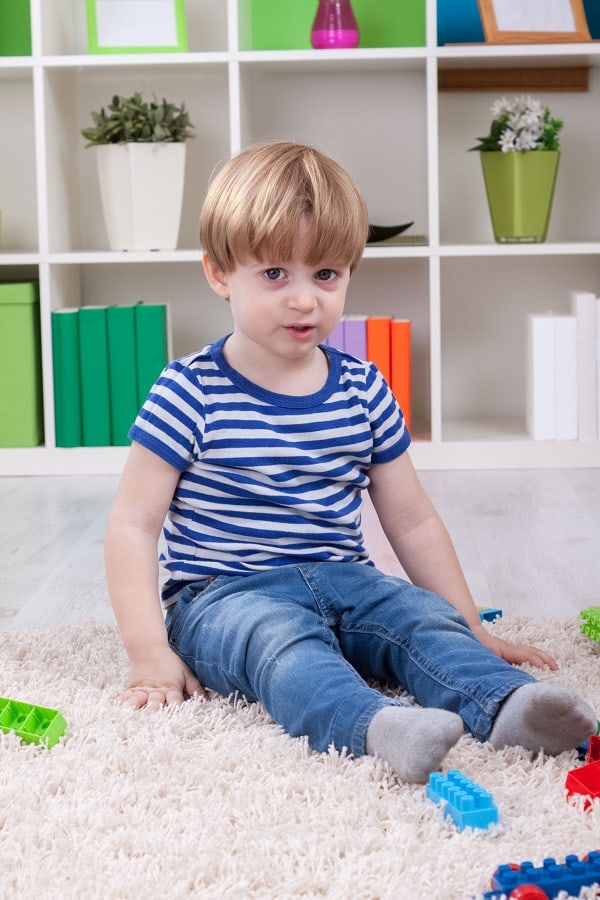 There are many signs that your child may benefit from psychological counseling or therapy. Some of these warning signs include: persistent and pervasive sadness or feelings of hopelessness, disproportionate reactive behavior including extreme anger, behavioral challenges at home and in school, persistent irrational worry or fear, sudden changes in mood, sleep irregularities, and difficulty accomplishing previously mastered day to day tasks. The signs of mental health concerns vary from child to child and it is always beneficial to consult with a psychologist, who will suggest the best course of treatment. It is critical for the psychologist to maintain open communication with families to determine progress and alignment on therapeutic goals. During this time, the psychologist and family may agree that a higher intensity of intervention and support is required, which leads to the question of alternative treatment. When consulting with your support team it is important be aware of all the treatments available that may assist in managing symptoms and challenging behavior. The following is a list of examples and explanations of intensive treatments that are available beyond individual therapy.
There are many signs that your child may benefit from psychological counseling or therapy. Some of these warning signs include: persistent and pervasive sadness or feelings of hopelessness, disproportionate reactive behavior including extreme anger, behavioral challenges at home and in school, persistent irrational worry or fear, sudden changes in mood, sleep irregularities, and difficulty accomplishing previously mastered day to day tasks. The signs of mental health concerns vary from child to child and it is always beneficial to consult with a psychologist, who will suggest the best course of treatment. It is critical for the psychologist to maintain open communication with families to determine progress and alignment on therapeutic goals. During this time, the psychologist and family may agree that a higher intensity of intervention and support is required, which leads to the question of alternative treatment. When consulting with your support team it is important be aware of all the treatments available that may assist in managing symptoms and challenging behavior. The following is a list of examples and explanations of intensive treatments that are available beyond individual therapy.
1. In home parenting support
Parent Management Training (PMT) encompasses psychoeducation regarding behavior and behavioral functions, as well as targeted work on the development and maintenance of parenting skills. At times, there is a disconnect between parenting work done in office and skill implementation at home. When this happens, a more intensive approach to parenting support may be indicated. This includes the psychologist or behavior analyst coming to your home during challenging moments and providing coaching based on skills learned in session. In home parenting support can vary in degree and intensity. Typically, a psychologist will start with multiple sessions per week at different times of day to establish rules, routines and expectations before beginning to fade out. For example, if evening routine (including homework, bath and bed) is consistently difficult the therapist will come to your home to provide support during these hours. This intervention is designed for parents to feel supported and empowered in the home environment.
2. Specialized school or school shadow
At times, a child requires intensive daily intervention that a mainstream school cannot support. Depending on the specific need, a psychologist may recommend a more supportive school environment or the introduction of a school shadow. A specialized school placement may include the following: increased therapeutic support (psychologists on staff), increased behavioral support (behavior analysts on staff), smaller student to teacher ratio, differentiated learning for children with learning differences, as well as social skills groups.
In other situations, a child may need some additional support in their school in order to meet expectations. During these times, the support team may recommend either a part time or full-time shadow. A behavioral shadow works under the supervision of a psychologist or behavior analyst and implements the behavior plan that has been developed. This individual has training in behavioral support and communicates daily with the supervising clinician as well as the family. The psychologist will meet regularly with the school as well as parents in order to track progress and make changes as needed.
Some families also consider the possibility of residential support programs. These schools encompass all areas of psychological and behavioral treatment, while also fostering independent living skills. At times, there is also a focus on vocational skill development. The duration of these supports varies child to child. If you are considering a specialized school placement for your child, a complete neuropsychological evaluation as well as meeting with an educational consultant is recommended.
3. Medication management –
Research tells us that evidence based therapies, including Cognitive Behavioral Therapy (CBT) and Dialectical Behavior Therapy (DBT) are indicated in the treatment of many psychological disorders. Sometimes; however, these therapies work best in conjunction with the support of medication. Specifically, medication may help support your child in better accessing therapeutic support and increase motivation to engage in sessions. If the intensity of symptoms does not progress with therapy alone, your child’s psychologist may suggest consultation with a psychiatrist. Furthermore, if your child presents with severe symptoms during an intake appointment, the psychologist may immediately recommend consultation with a psychiatrist in order to jump start progress. Psychiatrists and psychologists often work in conjunction to best support the psychological well-being of their patients.
4. ABA or intensified behavioral support at home or in the community
Challenging behavior can be a large impediment to day to day functioning for children and their families. While Applied Behavior Analysis (ABA) is commonly considered a support for children with Autism Spectrum Disorder (ASD), it has benefits that extend far beyond the ASD community. ABA is an intensive treatment delivered multiple times per week in various settings. The ABA therapist will work with you as well as any caregivers in developing a treatment plan as well as maintaining integrity and consistency in the intervention. Depending on individual need, ABA therapists can also provide support during playdates, after school activities, as well as during summer camp programs. ABA is data driven, meaning all therapists working with your family will be specifically tracking the frequency, intensity and duration of all targeted behaviors. As specific treatment goals are met the intensity of the therapy may start to decrease. ABA therapists often work in conjunction with other disciplines as well in order to ensure consistency across environments. ABA is indicated if behavioral concerns span settings (home, school, etc.) as well as caregivers.
When considering all available options, it is always best to maintain open and consistent communication with your child’s therapist, as well as any other members of the treatment team (school based professionals, speech therapist, occupational therapist, psychiatrist, etc.) to determine if an alternative treatment is the appropriate next step for your child. All of the supports listed in this article are designed to be complementary, meaning they are indicated alongside individual therapy as well as other therapeutic supports. They are also founded on evidence based principles, meaning there is significant research to support each treatment. If you are unsure where to start, an initial consultation with a psychologist is a great first step.





